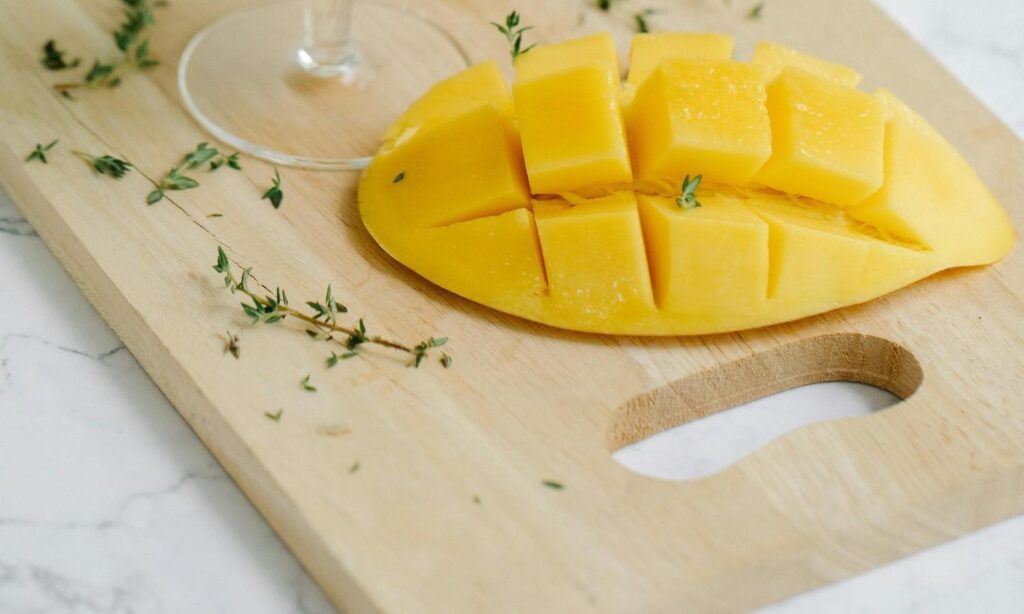Did you know that a single household can save enough water in a year to fill a swimming pool just by turning off the tap while brushing their teeth? It’s a small act, but it’s a ripple that joins a wave of change. World Nature Conservation Day, celebrated every July 28, reminds us that the planet’s health isn’t just the job of scientists or activists—it’s on all of us. And the best part? You don’t need to climb mountains or chain yourself to a tree to make a difference. Right from your home, simple daily habits can transform you into a nature hero. Let’s dive into how small, intentional choices can stack up to save ecosystems, reduce waste, and protect the planet we all share.
Why World Nature Conservation Day Matters
World Nature Conservation Day isn’t just another date on the calendar—it’s a call to action. Established to raise awareness about protecting natural resources, it highlights the urgent need to address climate change, deforestation, and biodiversity loss. According to the World Wide Fund for Nature (WWF), over 1 million species are at risk of extinction due to human activity. That’s not a distant problem—it’s happening now, affecting everything from the bees that pollinate our food to the forests that clean our air.
But here’s the thing: feeling overwhelmed doesn’t help. Instead, focusing on what you can do, right where you are, is empowering. I remember the first time I swapped out plastic straws for reusable ones. It felt trivial at first, but when I learned that 500 million plastic straws are used daily in the U.S. alone (National Park Service), I realized my tiny choice was part of something bigger. Let’s explore how you can build habits that add up without stepping outside your door.
Energy-Saving Habits: Power Down to Power Up the Planet
Your home is an energy hub, and small tweaks can cut your carbon footprint significantly. The U.S. Energy Information Administration notes that residential energy use accounts for about 20% of U.S. greenhouse gas emissions. Here’s how to lighten that load:
Switch to LED Lighting
- Why it matters: Traditional incandescent bulbs waste 90% of their energy as heat. LEDs use up to 80% less energy and last 25 times longer (Energy Star).
- How to start: Replace bulbs in high-use areas like your living room or kitchen. It’s a one-time swap that saves energy daily.
- Pro tip: Look for “warm white” LEDs to keep your home cozy without sacrificing efficiency.
Unplug the Energy Vampires
- Why it matters: Devices like chargers, TVs, and gaming consoles draw “phantom” power even when off, costing U.S. households $100 annually (Lawrence Berkeley National Laboratory).
- How to start: Use power strips to turn off multiple devices at once, especially at night. I started unplugging my coffee maker and laptop charger, and it felt like a secret victory over waste.
- Pro tip: Smart power strips can automatically cut power to idle devices.
Optimize Your Thermostat
- Why it matters: Heating and cooling account for nearly half of home energy use. Adjusting your thermostat by 7–10°F for 8 hours a day can save 10% on energy bills (U.S. Department of Energy).
- How to start: Lower the heat or raise the AC when you’re asleep or away. A programmable thermostat makes this effortless.
- Personal note: I set my thermostat to 68°F in winter and bundle up in a cozy sweater. It’s amazing how much you save while staying comfortable.
These habits don’t just cut emissions—they lower your bills, too. It’s a win-win that feels like you’re high-fiving Mother Nature.
Water Conservation: Every Drop Counts
Water is life, yet freshwater scarcity affects over 2 billion people globally (United Nations). At home, you can preserve this precious resource with minimal effort.
Shorten Your Showers
- Why it matters: A 10-minute shower uses up to 25 gallons of water. Cutting it to 5 minutes saves thousands of gallons yearly (EPA WaterSense).
- How to start: Set a timer or play a 5-minute song to keep showers short. I use my favorite upbeat track—it’s like a mini-concert that saves water.
- Pro tip: Install a low-flow showerhead to reduce water use without losing pressure.
Fix Leaks Pronto
- Why it matters: A dripping faucet can waste 3,000 gallons a year—enough to fill 180 bathtubs (EPA).
- How to start: Check faucets and toilets for leaks. A simple wrench or a call to a plumber can stop the drip.
- Fun fact: I once fixed a leaky kitchen faucet with a YouTube tutorial. It took 20 minutes and saved me from a guilty conscience.
Reuse Greywater
- Why it matters: Greywater (from sinks or laundry) can be reused for plants, reducing freshwater demand.
- How to start: Collect water from rinsing dishes in a bucket and use it to water your garden or houseplants.
- Personal touch: My basil plant thrives on greywater from my morning dishes. It’s like giving my herbs a second life.
These steps make water conservation feel less like a chore and more like a daily ritual for the planet.
Waste Reduction: Less Trash, More Triumph
The average American produces 5 pounds of trash daily, much of it avoidable (EPA). Reducing waste at home is a powerful way to celebrate World Nature Conservation Day.
Embrace the Three Rs: Reduce, Reuse, Recycle
- Reduce: Buy in bulk to cut packaging waste. Choose products with minimal or recyclable packaging.
- Reuse: Repurpose jars for storage or old clothes as cleaning rags. I turned an old T-shirt into a reusable grocery bag, and it’s now my go-to for shopping.
- Recycle: Learn your local recycling rules. Not everything is recyclable—greasy pizza boxes, for example, often belong in the trash (RecycleNation).
Compost Like a Pro
- Why it matters: Food waste in landfills produces methane, a potent greenhouse gas. Composting diverts 30% of household waste (EPA).
- How to start: Set up a small countertop compost bin for food scraps like vegetable peels or coffee grounds. Turn it into nutrient-rich soil for plants.
- Pro tip: No backyard? Many cities offer compost drop-off programs. I drop mine off weekly—it’s like a field trip for my food scraps.
Say No to Single-Use Plastics
- Why it matters: Plastic pollution kills 1 million marine animals annually (Ocean Conservancy).
- How to start: Swap plastic bags for reusable totes, bottles for stainless steel, and straws for bamboo or metal.
- Personal story: I keep a reusable water bottle in my bag. It’s saved me from buying countless plastic bottles—and it’s a conversation starter.
Reducing waste feels like decluttering your life while giving the planet a breather.
Sustainable Eating: Your Kitchen as a Conservation Hub
What you eat impacts the planet. Agriculture accounts for 10–12% of global greenhouse gas emissions (IPCC). Here’s how your kitchen can become a nature-saving powerhouse.
Go Plant-Based (Even Part-Time)
- Why it matters: Meat production emits 14.5% of global greenhouse gases. Cutting back even one day a week makes a dent (FAO).
- How to start: Try “Meatless Mondays” with recipes like lentil tacos or mushroom stir-fry. I was skeptical at first, but now I crave my weekly veggie bowls.
- Pro tip: Explore local farmers’ markets for fresh, sustainable produce.
Minimize Food Waste
- Why it matters: Globally, 1.3 billion tons of food are wasted annually, squandering resources like water and energy (FAO).
- How to start: Plan meals, store leftovers properly, and use “past their prime” veggies in soups or smoothies.
- Fun hack: I freeze overripe bananas for smoothies. They’re sweet, creamy, and zero-waste.
Choose Sustainable Packaging
- Why it matters: Packaging accounts for 40% of plastic waste (Greenpeace).
- How to start: Opt for brands with eco-friendly packaging or shop at zero-waste stores.
- Personal note: I started buying loose produce instead of pre-packaged. It’s cheaper and feels like a small rebellion against plastic.
Your kitchen choices can nourish both you and the planet.
Green Living: Small Tweaks, Big Impact
Beyond energy, water, and food, your daily routines can align with nature conservation.
Use Eco-Friendly Products
- Why it matters: Conventional cleaners often contain chemicals harmful to waterways (EPA).
- How to start: Switch to biodegradable soaps or make your own with vinegar and baking soda.
- Pro tip: I mix vinegar and lemon for a sparkling, planet-friendly cleaner. It smells amazing, too.
Grow Your Own Food
- Why it matters: Home gardening reduces reliance on industrial agriculture and boosts biodiversity.
- How to start: Start with herbs like mint or basil on a windowsill. No green thumb required.
- Personal story: My tiny balcony garden now grows cherry tomatoes. It’s a small victory every time I pick one.
Educate Yourself and Others
- Why it matters: Knowledge fuels action. The more you learn, the more you inspire others.
- How to start: Follow conservationists like Jane Goodall or read books like The Hidden Life of Trees by Peter Wohlleben.
- Pro tip: Share tips on social media to spark conversations. I posted about my composting journey, and friends started their own bins.
These habits weave conservation into the fabric of your life, making every day a mini World Nature Conservation Day.
The Ripple Effect: Why Your Actions Matter
Every choice you make sends a signal—to your community, to businesses, to the planet. “Small actions, when multiplied by millions of people, can transform the world,” says conservationist Jane Goodall. Your decision to skip a plastic straw or compost a banana peel might seem minor, but it’s part of a global movement. In 2024, grassroots efforts helped reduce plastic waste by 5% in some regions (UN Environment Programme). That’s the power of collective action.
What’s next? Reflect on one habit you can start today. Maybe it’s unplugging your charger or planting a seed. Whatever it is, let it be your pledge to the planet. How will you make World Nature Conservation Day your own, not just on July 28, but every day?










